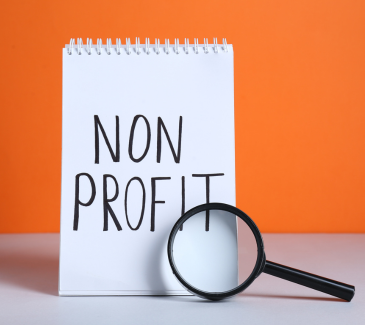Professional Associations have long been the backbone of many industries. They promise community, networking, mentoring, credibility, and growth opportunities. In theory, they are built on a noble foundation: professionals helping professionals.
But in recent years, I’ve noticed a subtle shift one that I suspect many quietly feel but rarely discuss out loud.
It seems increasingly clear that the value exchange between associations and their members is becoming lopsided.
Members donate their time, ideas, leadership, and experience. They serve on committees, volunteer for events, write content, recruit others, and support the organization’s mission. Their contributions are the lifeblood of the association.
Yet when those same members wish to participate more deeply, to learn, attend, or engage, they often find themselves facing a string of fees.
Donate your time.
Donate your expertise.
Donate your energy.
And then… please pay to participate.
Something about that equation no longer feels in balance.
The Unseen Cost of “Belonging”
Every association needs revenue to survive. That’s reasonable. Programming, staff, materials, and infrastructure cost money.
But the modern membership model has tilted toward a “pay to engage further” mindset:
- Pay your membership dues.
- Pay for every workshop.
- Pay for every conference session.
- Pay for advanced training.
- Pay for certifications.
- Pay to volunteer in specific capacities.
And while all of these offerings may have genuine value, the more profound concern is this:
Why is participation itself becoming a transaction?
When an organization asks for volunteer labor and then charges volunteers to attend the events they’re supporting, it creates an ethical tension. Members begin to wonder whether they belong to a community — or to a marketplace.
The Quiet Hierarchy No One Talks About
Over time, I noticed another pattern — one I suspect many volunteers observe but seldom voice. A segregation or pecking order forms within some associations. A small group gains visibility, influence, and opportunities to teach paid courses, often with the organization’s full support. Meanwhile, many members donate countless hours yet must still pay to engage with the same programs they help uphold.
This dynamic isn’t intentional or malicious, but it does create a structural imbalance. It can begin to resemble an endless recruitment cycle: bring in new members, rely on their enthusiasm, and unintentionally exhaust the very people who contribute the most. When participation becomes an economic pipeline rather than a shared endeavor, even the most dedicated volunteers start to feel the strain.
And once that question is raised, it isn’t easy to un-ask.
The Emotional Tax on Volunteers
Most associations are held together by a small band of dedicated members who serve tirelessly.
They:
- take on leadership roles
- respond to emails late at night
- run local chapters
- train newcomers
- mentor students
- help organize conferences
- promote the association’s mission
These are the people any well-run organization should treasure.
But when volunteers feel taken for granted, a subtle erosion begins — not of loyalty, but of meaning.
It is not “sour grapes” to feel this.
It is simply the natural human response to an imbalanced exchange.
People will contribute generously when they feel valued.
But they will quietly withdraw when they feel used.
The Larger Question: What Should Membership Mean?
At its core, membership should represent:
- Shared purpose
- Shared responsibility
- Shared benefit
Reciprocity is the engine of healthy professional communities. When it works, everyone grows.
But when the return on membership becomes:
- unpredictable
- minimal
- or dependent on personal sacrifice
Then the association risks burning out the very people who hold it together.
Membership should never feel like paying admission to your own generosity.
A Way Forward: Reimagining the Value Exchange
Instead of criticizing associations, I believe there’s a constructive conversation to be had—one that invites all professional organizations to reflect on their futures.
A sustainable, ethical association model could include:
- Clear, tangible benefits for volunteers
If someone donates their time, expertise, or leadership, there should be built-in perks — discounted learning opportunities, free access to training, or recognition that feels meaningful.
- Transparent value delivery
Members should feel the return on their investment in concrete ways — not vague promises of “networking opportunities.”
- Consideration and Honor for Those Who Donate Their Time
Volunteers are not free labor. They are partners. Treat them as such.
- Balanced pricing models
If everything costs extra, engagement naturally declines. A healthier model is one where baseline participation is truly included in the membership itself.
- A renewed focus on mission, not monetization
Associations should be more than revenue engines. They should be communities of purpose, rooted in service and professional uplift.
Why I’m Writing This Now
I write this not out of resentment, but out of reflection.
I have served on committees. I have volunteered. I have supported missions. I have given my time and energy freely because I believe in professional community and collaboration.
And I also believe in honesty in naming a misalignment when I see one.
This is not about one association or one experience.
It is about a pattern emerging across many industries.
It is about a system that deserves examination.
And it is about advocating for healthier, more reciprocal community models.
Most of all, it is about honoring the countless professionals who give so much of themselves quietly, reliably, generously, expecting little in return except the satisfaction of contributing to something larger than themselves.
Those individuals deserve to feel valued.
They deserve associations that live up to their mission statements.
They deserve a community where generosity is not taken for granted, but celebrated and supported.
A Final Thought
Stepping back from specific associations didn’t diminish my commitment to my profession. What it clarified was something much larger: membership should never feel like a transaction disguised as community.
Volunteers are the backbone of any professional organization. They contribute time, experience, and genuine care. When their efforts are undervalued — or overshadowed by constant financial demands — something essential begins to erode.
Healthy associations honor both contributions and connection.
They balance financial needs with fairness.
They recognize that sustainable communities are built on reciprocity, not extraction.
As professionals, we aren’t looking for notable exceptions.
We’re simply looking for alignment — for an association whose values reflect our own.
When that alignment exists, everything flourishes.
When it disappears, no amount of dues, programs, or conferences can replace it.
In the end, the question is simple:
Does this organization strengthen my sense of belonging—or diminish it?
It’s a question worth asking. And for many of us, it’s long overdue.
Membership should feel like belonging, not like a transaction.
If we want our professional communities to flourish, we must ask an honest question:
Are we building associations that serve, or associations that charge?
The future of professional membership depends on the answer.











































































